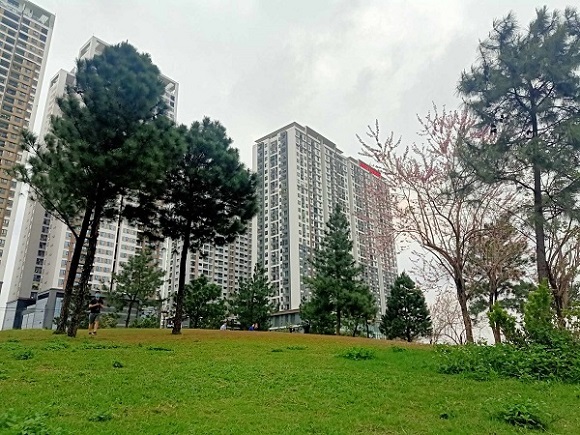The real estate market has recently recorded signs of improvement as supply has gradually improved, along with that, social housing has also added a significant amount of products. However, housing prices continue to increase, especially in the apartment segment - where primary prices continue to be pushed up, leading to price increases in many other segments.
Mr. Le Dinh Chung - General Director of SGO Homes said that newly opened projects have higher prices than the same period but are still well absorbed, even "selling" on the first day of opening, thanks to increased demand for real estate and investment in the context of "cheap" cash flow and inflationary pressure boosting demand for "hiding" assets.
In the third quarter, the whole market recorded about 34,000 successful transactions, raising the absorption rate to 66%, up 12 percentage points compared to the previous quarter thanks to released inventories. The new supply absorption rate reached 77%, equivalent to 27,000 transactions, up 23%. Transactions mainly come from the apartment segment, accounting for more than 66%, with an absorption rate of 81%, while the low-rise segment also recorded positive results, with an absorption rate of 60%.
In the first 9 months of 2025, the absorption rate on newly opened supply reached 68%, equivalent to more than 58,000 successful transactions, double the same period in 2024, with the majority of transactions coming from the demand of second-time real estate buyers or more.
Mr. Chung said that the prices of housing products for the first time opening for sale continue to be "exorbitantly" high, pushing up the secondary price level. Secondary transactions become more vibrant because primary products have high prices and are mainly products formed in the future, causing buyers to switch to transferred goods. However, the actual transaction volume is still limited because the available supply is scarce, most owners do not have a need to sell, and investors are waiting for prices to increase.

In Hanoi, the sharp increase in primary prices has caused the whole market price to increase, many apartment projects have recorded an increase of several hundred million to billions of VND in a short time, especially in urban areas with synchronous infrastructure and utilities. Meanwhile, in Ho Chi Minh City, the increase in apartment prices continues to spread, focusing on projects with complete legal documents, around key transport infrastructure projects and reasonable price levels. At the end of the third quarter, a strong wave of investment from the Northern region, especially Hanoi, caused many projects to " scene waves", even increasing prices by 5% in just one week.
Assessing the current real estate market, Ms. Pham Thi Mien - Deputy Director of the Vietnam Real Estate Market Research and Assessment Institute said that, despite continuously recording many signs of improvement, the Vietnamese real estate market is still facing a situation of not being clean of bottlenecks and inadequacies. The situation of high real estate prices poses a risk to the market, unbalanced supply and demand, rapid increase in real estate credit, dispersed market information, lack of synchronization and transparency, and the legal corridor is not yet complete.
If these limitations are not handled promptly, they will hinder the stable and sustainable development of the industry and negatively impact the overall economic growth, said Ms. Mien.











